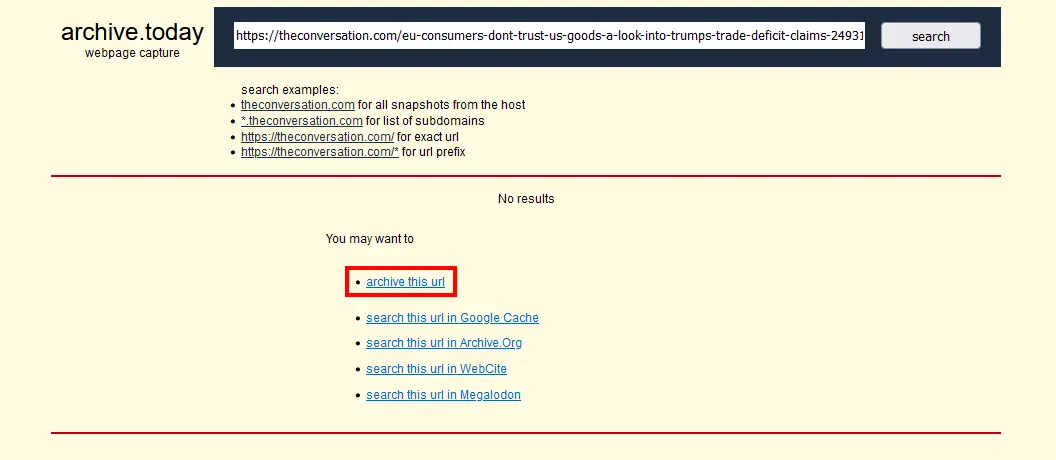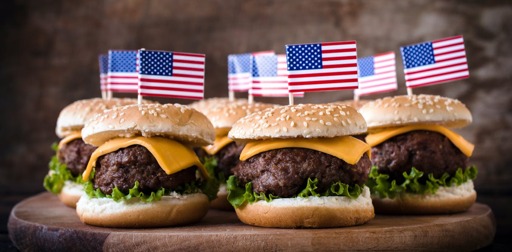Tariffs aside, regulations mean the EU rarely imports certain US products, such as meat and dairy.
Archived version: https://archive.is/newest/https://theconversation.com/eu-consumers-dont-trust-us-goods-a-look-into-trumps-trade-deficit-claims-249315
Disclaimer: The article linked is from a single source with a single perspective. Make sure to cross-check information against multiple sources to get a comprehensive view on the situation.
Consumer behaviour and preferences – on both sides of the Atlantic – play a huge part in the US-EU trade relationship. A trade deficit often reflects differences in production costs and product quality. This suggests that American consumers generally prefer European products over domestic alternatives, while European consumers favour their own products over American ones. The result is a trade deficit in favour of the EU. One major contributing factor, particularly in food exports to the EU, is the bloc’s stringent regulations on agriculture, which the US has repeatedly challenged. These include rules on hygiene and pesticides (known as sanitary and phytosanitary standards, SPS) and geographical indications (GIs). Longstanding and unresolved trade disputes involving agricultural products have limited US exports to the EU, particularly in beef, poultry, and dairy products.
I prefer European imports, whenever possible, but it’s rare, being in a food desert.
US always had lax safety standards for food, but now with FDA being led by a nut job, it will get even worse.
I shop at Costco Japan and I have a feeling the chicken I (soon to be used to) buy comes from the US. Thankfully, the bacon and pork are local or Canadian, the fish local, and I think the cheese is from Korea. Definitely changing my shopping habits.
The whole trade war circus is just another pathetic narcissist circus. Trump’s tariff tantrums and the EU’s “proportionate response” reek of performative politics. Neither side cares about actual people—just protecting their fragile egos and corporate donors. The deficit numbers? Smokescreens for incompetence. The real issue is that EU consumers don’t want hormone-pumped beef or plastic cheese, and Americans prefer European engineering over their own gas-guzzling relics.
Regulatory theater on both sides masks a deeper rot. The EU’s “precautionary principle” is just protectionism with a fancy name, while the US whines about “unfairness” while subsidizing Big Ag to dump Monsanto corn globally. Neither bloc will admit their systems are broken, clinging to late-stage capitalism’s death spiral.
Trade wars won’t fix this. They’re distractions from the real crisis: a global governance model built on exploitation and denial. But hey, at least the propaganda machines on both sides get fresh content.
If you agree that the divided States of America are starting bullshit trade wars, how should the EU react in your opinion if the current way is not to your liking and only smokescreen?
Because as far as I understand, the counter tariffs are just the allowed tit for tat reaction in accordance to international trade law.
I mean yes, system change is needed to protect humanity and life on the planet, but as far as the tariffs go… I don’t exactly disagree with the EU way to do it.
The EU’s reaction is just as performative as the U.S.’s instigation. Tariffs are legal under international trade law, sure, but legality doesn’t equal wisdom. It’s a tit-for-tat game that ignores the systemic rot underneath. Both sides are propping up industries that should have been restructured decades ago, clinging to outdated economic paradigms.
The current system isn’t about protecting humanity or the planet—it’s about preserving power structures. The EU’s “precautionary principle” and the U.S.’s subsidy circus are just different flavors of the same poison: corporate welfare masquerading as public interest.
Real change would mean dismantling these systems, not playing within their rules. But let’s be honest—neither bloc has the stomach for that kind of upheaval. They’ll just keep trading blows while the world burns.
Should the EU just open their borders for hormone filled products and other crap? You can mock some of the EU regulations, and part of it is definitely pure protectionism, but it’s generally good.
They forced every phone to use USB for charging, for example. Globally. On the downside they also forced those damn cookie banners on us.
The EU’s regulations are a mixed bag of overreach and occasional utility, sure, but let’s not pretend their motives are altruistic. Forcing USB-C wasn’t about saving the planet—it was about flexing regulatory muscle for market control. The cookie banners? A laughable facade of “privacy” that just entrenches surveillance capitalism.
As for hormone-filled products, the debate isn’t about health; it’s about economic leverage disguised as ethics. Protectionism wrapped in moral superiority is still protectionism. Let’s not glorify one flavor of corporate pandering over another. Both blocs are playing the same rigged game, just with different PR teams.
Stop defending systems that exist to perpetuate their own power. The EU isn’t your savior—it’s just a different kind of overlord.
For fucks sake the cookie banners are not required be EU law. I’ll never understand why people can’t understand this.
The law just says you can’t use my personal data without consent and the cookie banners is what the industry does to work around that. Even more fun fact, most of these banners are outright illegal.
They are neither market propection nor regulatory muscle flexing, people over here just DO NOT WANT US and China style “All your data are belong to us” live without privacy.
The law may not dictate cookie banners directly, but it creates the conditions for their existence. It’s a bureaucratic sleight of hand: pass vague rules, let corporations interpret them in the most obnoxious way possible, and then claim innocence. Convenient, isn’t it?
And no, these banners aren’t about protecting you. If they were, the default would be no tracking, not a labyrinth of opt-outs designed to exhaust you into compliance. It’s surveillance capitalism with a thin coat of legal paint.
Stop pretending this is about your data or privacy. It’s about maintaining the illusion of control while the system grinds on. Whether it’s EU paternalism or Silicon Valley exploitation, the result is the same: your autonomy sold off piece by piece.
Maybe read the law? That’s exactly what it says. Obnoxious cookie banners are and have been illegal from day one. Denying usage of your personal data must be as simple as accepting it.
I admit it took much too long for the courts to effectively rule against the companies doing obnoxious cookie banners and even then it’s hard because a lot of the companies doing such crap are outside of jurisdiction and hard to get.
On top only after that shit has been around a few years (and yes you’ll have a relevant amount of court decisions only after 10 years or so) rules become clearer as there have been a number of cases - and guess what, the companies doing the obnoxious banners lose those cases.
But still a lot of them do it. Why? Because the fines are relatively low. They can get away with it, especially when they get on a standpoint oopsie we didn’t know.
Now one thing that hasn’t been in court is a model “pay a membership fee or we’ll use your data”. This is what Meta does, they demand a crazy fee (I think something like 35 Euro per month per person) or they’ll use your data. Btw there’s no cookie banner on Insta/Facebook etc. (because cookie banners are not required by law) - Meta just asks that I decide whether I pay or they can use my data (from time to time)
But still also the pay or be sold model is widely believed to be illegal under GDPR, but that will only get clear until one successfully (or unsuccessfully) has a court case against a high profile target like Meta or one of the big newspapers in EU which all use the same idea by putting up paywalls with an “allow tracking, then it’s free” option.
I’ve been professionally doing this shit for quite some time now, building solutions to get consent from customers without cookie banners. For EU car makers, btw - and believe me, they don’t like it any more than you do. If they could they would love to analyze every bit of tracking data they could get, your driving habits, where you go etc. Cars are smartphones on wheels nowadays. The only reason you don`t have obnoxious cookie banners when you start up your car? Obnoxious cookie banners are illegal - AND car producers are easier to catch in court than a media company on the other side of the globe.
Is anyone else having issues with the archived link?
It looks like nobody yet archived it. You can click
archive this urlto do that yourself.




